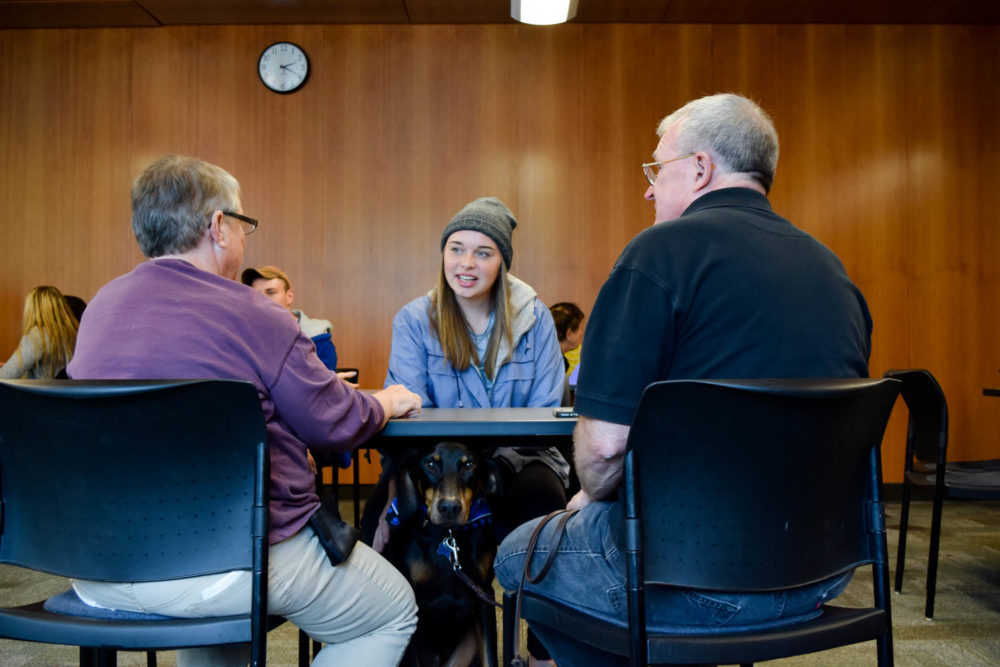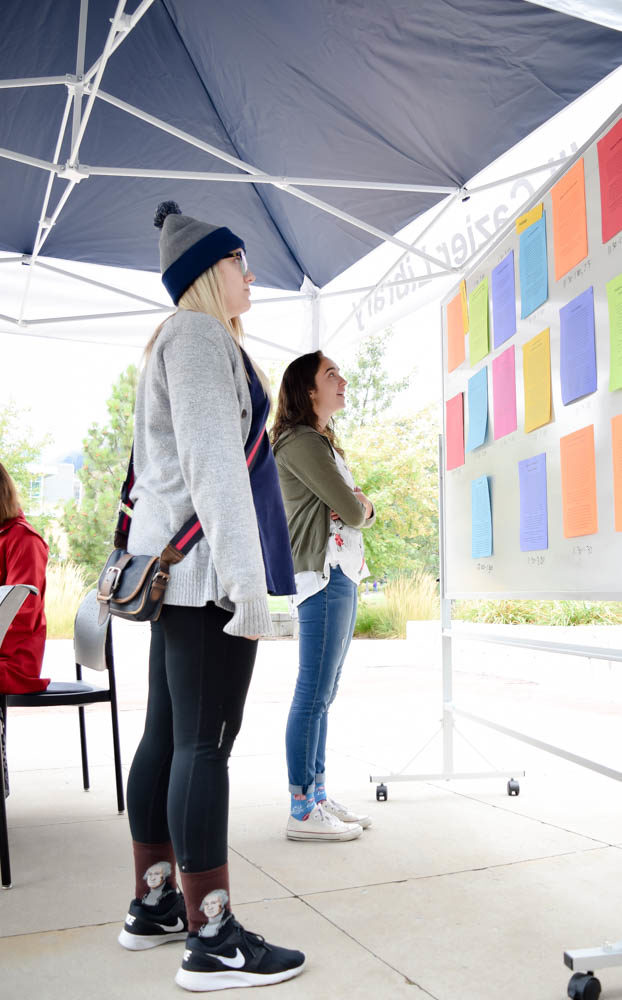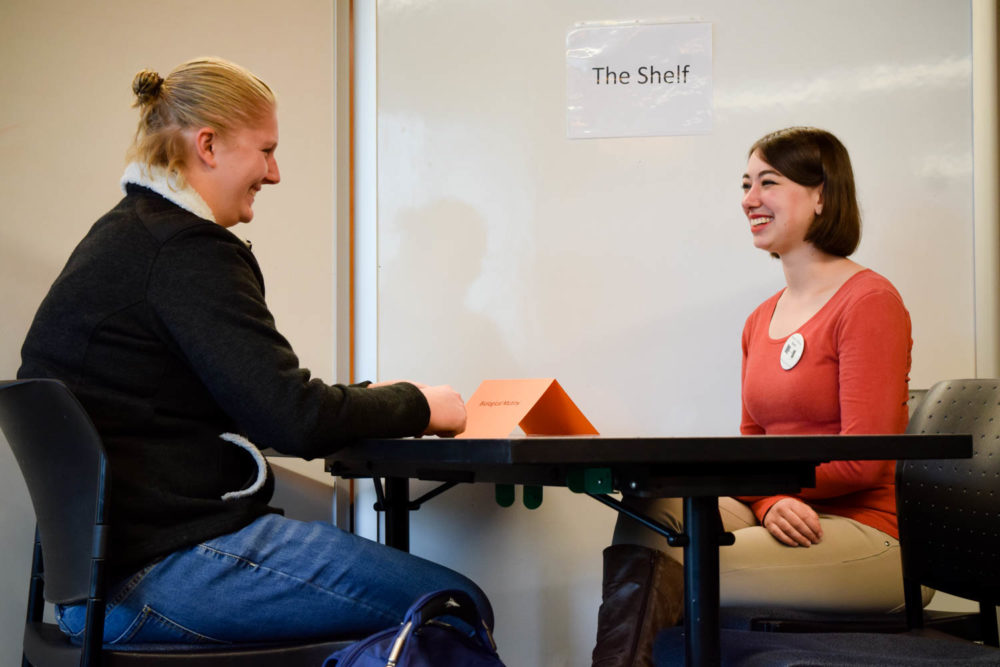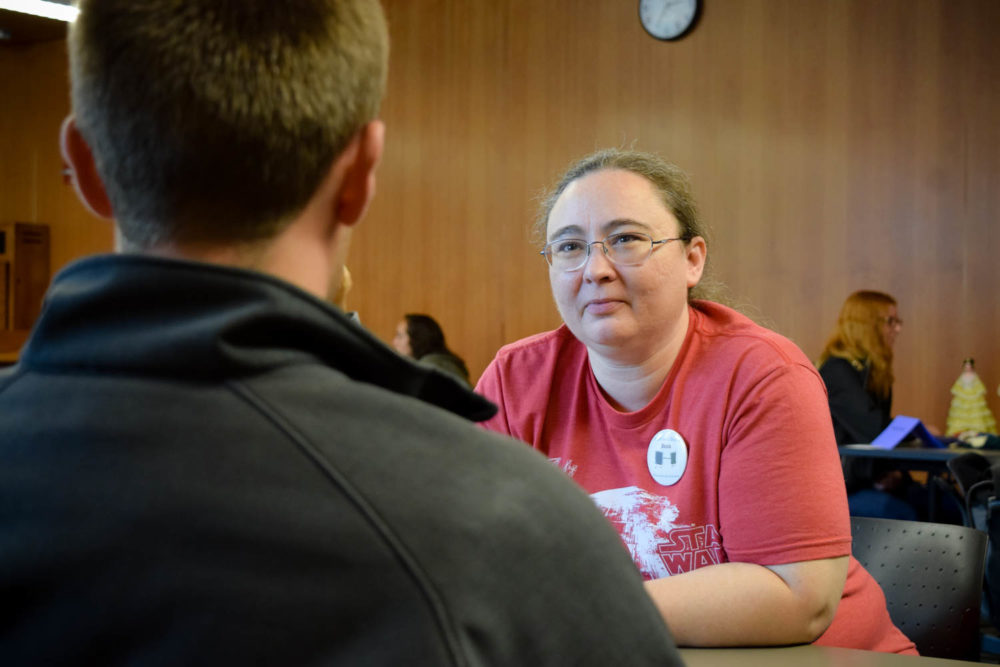Final year for USU’s Human Library?
The Human Library, an event hosted by the Merrill-Cazier Library, might be ending after this year.
Utah State has hosted the Human Library as an annual, sometimes semi-annual, event for the past six years.
Last week, patrons of the library were able to check out “human books,” people who told their stories about a variety of topics ranging from abortion, mental illness, vision quests, disease and more.
 Autumn Dunda
Autumn Dunda Human books were “checked out” for 30 minutes at a time. The Human Library consisted of 27 human books this year.
Anne Hedrich, the coordinator of the event, said concerns with time and commitment make it so they are unsure if the program will be hosted in the future.
“It takes a lot of time and energy to organize and find books, and we’re not able to sustain it just in the library anymore,” she said.
 Autumn Dunda
Autumn Dunda Hedrich said that with people retiring, graduating and getting other jobs, it’s harder to find enough people committed to take time to find books, organize and run the event.
“It’s really rewarding for everyone,” Hedrich said. “I think everyone would like it to continue. If there’s a way we can make it continue, then we will.”
The purpose of the Human Library is to introduce people to different perspectives. The event is meant to address social issues such as prejudice, discrimination and labels in a non-threatening way.
 Autumn Dunda
Autumn Dunda Mitch Holmes, a participant at the Human Library, said the event is a great way to learn and become aware of certain situations.
“You’re hearing real-world experience,” Holmes said. “You’re hearing it from the source and not just assuming things.”
Herm Olsen enjoyed the opportunity he had to share his experience as a first-time human book.
“It might help people avoid painful mistakes or shatter misconceptions,” Olsen said. “If people share and talk then we know more.”
 Autumn Dunda
Autumn Dunda Mary Anne McCormick, a participant of the Human Library, said the event is too great of an opportunity to let it go and hopes it will continue in coming years.
“If people care about community, about the gaps and differences, we need things like this,” she said.
— dillan.passmore@aggiemail.usu.edu
@dirtyghettopass

